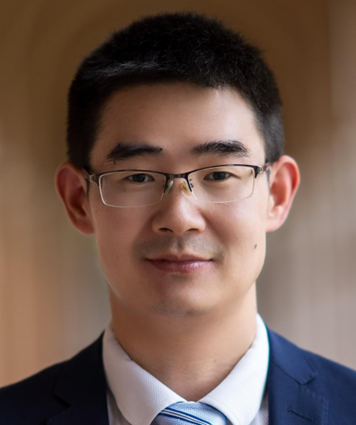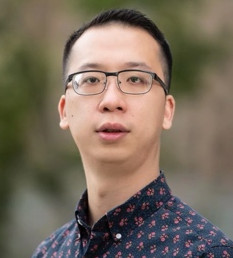INVITED SPEAKERS

Kuichang Zuo<<Peking University, China
Dr. Kuichang Zuo obtained his Ph.D. in 2016 from Tsinghua University in Beijing, and worked as a postdoc in the department of Civil & Environmental Engineering at Rice University in Houston, USA, during 2017-2021. After that, Dr. Kuichang Zuo joined the college of Environmental Sciences & Engineering at Peking University, Beijing, China, as an assistant professor since 2022. The research interest of Zuo’s group is water desalination and ion management, including hypersaline water desalination, target ion selective removal/recovery, and anti-scaling etc. Some specific technical processes include membrane distillation (MD), capacitive deionization (CDI), electrodialysis (ED), nanofiltration (NF), reverse osmosis (RO) etc. Dr. Zuo’s group focuses on novel materials, processes, as well as pilot scale reactor and system designs. He has published over 60 SCI articles, including some published on top journals such as Nature Nanotechnology, Nature Communications, Nature Reviews Materials, Materials Today, Environmental Science & Technology, Water Research etc., with a H index of 27. Dr. Kuichang Zuo is a recipient of American-Made Geothermal Lithium Extraction Prize (DOE, USA), Outstanding achievement award of scientific research (Ministry of Education, China), Capital ECO-PRO Group “Water Star” Scientific Innovation Prize etc. Dr. Kuichang Zuo is also a Scientific Committee Member of the IWA Specialist Group on Membrane Technology, member of youth editorial board of Desalination journal, and member of IWA Young Water Professionals.

Peng Gao<<Harvard University, USA
Dr. Peng Gao is an Assistant Professor of Environmental Health and Exposomics in the Department of Environmental Health at the Harvard T.H. Chan School of Public Health. As a junior leader in the field of exposomics, Dr. Gao brings a unique interdisciplinary background that bridges analytical chemistry, exposure science, and biomedical research. After receiving his Ph.D. from the University of Florida, where he developed expertise in environmental chemistry and toxicology, Dr. Gao pursued postdoctoral training at Stanford University School of Medicine. There, he focused on human exposome research and integrated multi-omics approaches to understand complex exposure-health relationships. At Harvard Chan, Dr. Gao's research program combines cutting-edge analytical techniques, including high-resolution mass spectrometry, with innovative computational methods to advance the field of exposomics. His work aims to provide a more comprehensive understanding of how environmental exposures impact human health by integrating targeted and non-targeted approaches in both environmental monitoring and human biomonitoring. Dr. Gao has published over 70 peer-reviewed articles in top-tier journals and has been recognized with several prestigious awards. He serves on the editorial boards of multiple journals, including Environmental Health Perspectives, Environmental Pollution, and Chemosphere, and is an Associate Editor for Critical Reviews in Environmental Science and Technology. Dr. Gao has secured significant pilot and federal funding to support his research, including an NIH/NIEHS grant to study the post-accident exposome in East Palestine, OH. Additionally, he demonstrates leadership in his field as the Co-Chair of the Diversity Committee for the International Society of Exposure Science. Dr. Gao's innovative research aims to unravel the complex interactions between the exposome and human health, with potential applications in precision medicine and public health interventions.
Speech title "Integrating Targeted and Non-Targeted Exposomics for Advanced Environmental- and Bio-monitorings"
Abstract-Environmental
monitoring and human biomonitoring are critical for assessing the impact
of pollutants on ecosystems and human health. We explore the integration
of targeted and non-targeted exposomics approaches to enhance the
detection, (semi)quantification, and assessment of environmental
contaminants and their biological effects. High-resolution mass
spectrometry techniques were employed to combine traditional targeted
analysis with non-targeted screening, providing a comprehensive profile
of environmental chemical burdens and human exposures.
Our research involved multi-matrix sampling strategies across various
environmental media and biological specimens. Targeted analysis focused
on quantifying known pollutants, while non-targeted screening enabled
the discovery of emerging contaminants and novel exposure patterns. This
integrated approach revealed complex exposure profiles in both
environmental and biological samples, offering insights into the
interplay between environmental pollutants and human health.
Data integration and interpretation challenges were addressed, leading
to the development of novel computational methods for processing
large-scale exposomics datasets. The study demonstrates the potential of
this integrated approach to inform environmental health policies and
risk assessments, providing a more holistic understanding of
exposure-health relationships.
By expanding the range of detectable compounds while maintaining
quantitative precision for known pollutants, this research advances the
field of environmental health sciences. The findings highlight the value
of integrating targeted and non-targeted exposomics in developing more
comprehensive and insightful strategies for environmental monitoring and
human biomonitoring. This approach paves the way for improved
environmental protection measures and more targeted public health
interventions.